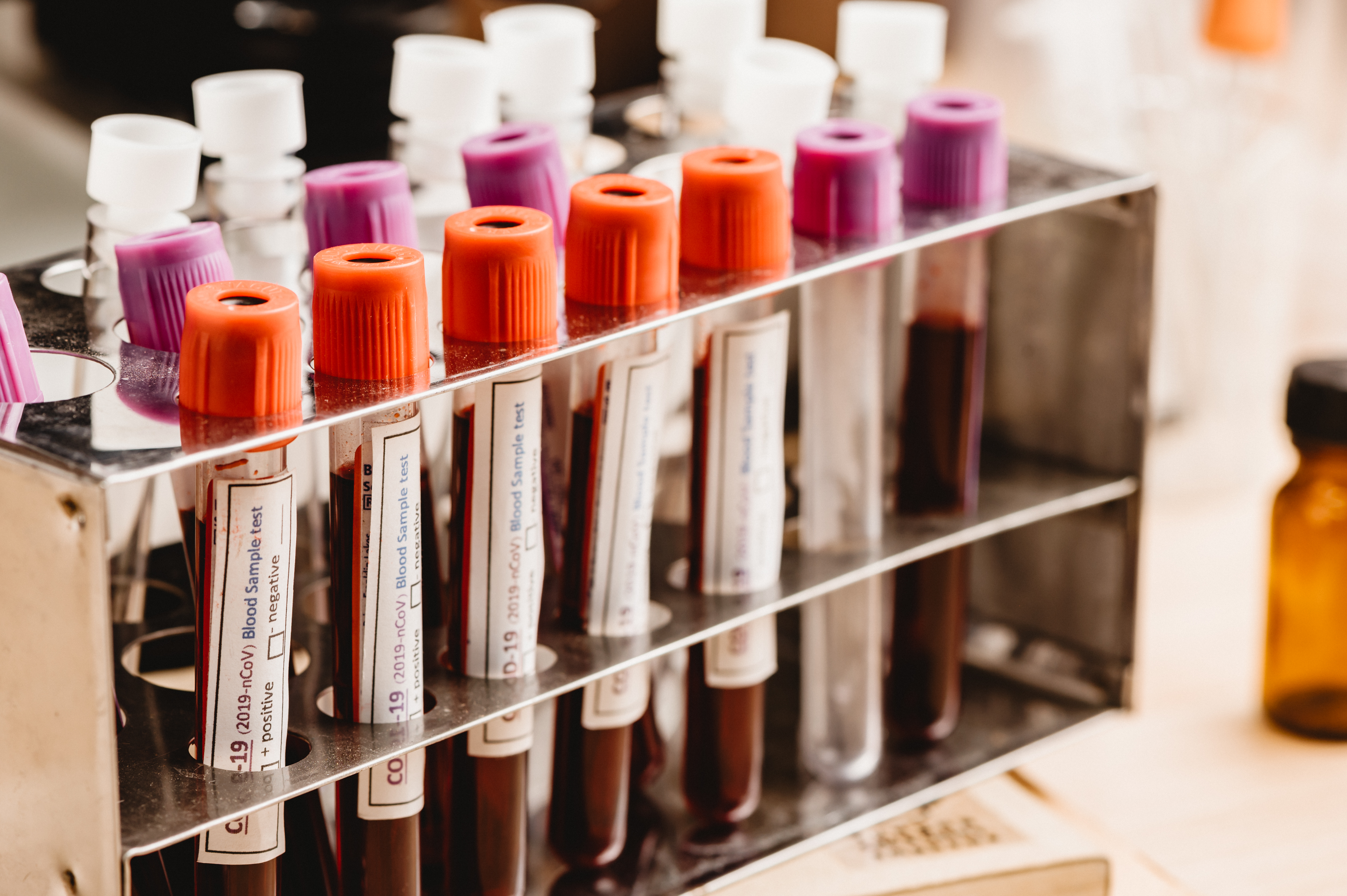Unmissable Signs You're Running Low on Thiamine
Most people have never heard of thiamine deficiency—and that’s exactly what makes it so dangerous. Also known as Vitamin B1, thiamine is the unsung hero behind your body’s ability to convert food into fuel, power your nervous system, and keep your heart beating strong. But when your levels drop? The symptoms can be strange, subtle, and shockingly easy to miss—until it’s too late. From bizarre mood changes to unexpected physical weakness, your body may be sending quiet distress signals you don’t recognize. That’s why we’ve expanded our guide to 16 surprising signs of a dangerous Vitamin B1 deficiency—so you can catch the warning flags early and take action before lasting damage sets in. Whether you’re navigating unexplained fatigue, brain fog, or mysterious aches, it might be time to look closer at your thiamine levels.
1. The Science Behind Thiamine Deficiency

Thiamine deficiency occurs when the body lacks adequate levels of this vitamin, which can be due to poor dietary intake, increased demand, or impaired absorption. The human body does not store thiamine in large amounts, making regular intake through diet crucial. This deficiency can lead to a condition known as beriberi, which affects the cardiovascular and nervous systems. Two primary forms of beriberi exist: wet beriberi, which impacts the heart and circulatory system, and dry beriberi, which affects the nerves and can lead to muscle paralysis. Understanding the biochemical pathways and the role of thiamine in these processes helps in grasping the gravity of its deficiency. Thiamine acts as a cofactor in enzymatic reactions that are pivotal for energy production, and without it, the body cannot efficiently convert carbohydrates into energy, leading to fatigue and weakness.
2. Early Warning Signs: Fatigue and Irritability

One of the earliest signs of thiamine deficiency is a persistent feeling of fatigue. This occurs because thiamine is essential for energy production, and without it, the body's ability to generate energy from food is compromised. Alongside fatigue, individuals may experience irritability and mood changes. This is because thiamine is also involved in synthesizing neurotransmitters that regulate mood. When the brain lacks sufficient energy, it can affect emotional regulation, leading to increased irritability. These symptoms can often be mistaken for stress or overwork, which is why they are considered surprising indicators of a deeper nutritional issue. Recognizing these early signs is crucial for preventing more severe complications associated with thiamine deficiency.
3. Neurological Symptoms: Tingling Sensations and Memory Loss

As thiamine deficiency progresses, neurological symptoms become more pronounced. One of the key indicators is the development of tingling sensations in the hands and feet, known as peripheral neuropathy. This occurs because thiamine is crucial for nerve function, and its deficiency can lead to nerve damage. Another surprising symptom is memory loss or difficulty concentrating. Thiamine is vital for brain health, and its lack can impair cognitive functions, causing forgetfulness and confusion. These neurological symptoms highlight the importance of thiamine in maintaining a healthy nervous system. Addressing these signs early can prevent long-term damage and improve quality of life.
4. Cardiovascular Issues: Shortness of Breath and Heart Palpitations

Thiamine deficiency can have significant effects on the cardiovascular system, leading to symptoms such as shortness of breath and heart palpitations. These occur because thiamine is essential for the proper functioning of the heart muscle and energy production. Without adequate thiamine, the heart cannot pump efficiently, leading to fluid retention and heart failure in severe cases. Shortness of breath may also be a result of fluid accumulation in the lungs due to heart failure. Recognizing these cardiovascular signs is crucial as they can quickly escalate into life-threatening conditions if not addressed promptly. Ensuring adequate thiamine intake is vital for maintaining cardiovascular health.
5. Digestive Disturbances: Nausea and Abdominal Discomfort

Digestive issues are another surprising sign of thiamine deficiency. Individuals may experience nausea, abdominal discomfort, or even a loss of appetite. Thiamine plays a role in the digestive process by aiding in the breakdown of carbohydrates, and its deficiency can disrupt normal digestion. This can lead to gastrointestinal symptoms that are often overlooked or attributed to other causes. Chronic digestive disturbances can further exacerbate thiamine deficiency by impairing nutrient absorption, creating a vicious cycle. Understanding the link between thiamine and digestive health underscores the importance of a balanced diet rich in this essential vitamin.
6. Muscle Weakness and Coordination Problems

Muscle weakness and coordination problems are common symptoms of thiamine deficiency, particularly in its advanced stages. Thiamine is crucial for muscle function, and its deficiency can lead to muscle atrophy and weakness. Individuals may find it difficult to perform everyday tasks, and their coordination may be impaired, leading to an increased risk of falls and injuries. These symptoms are particularly concerning in older adults, who may already be at risk for falls. Addressing thiamine deficiency through dietary changes or supplementation can help restore muscle strength and improve coordination, enhancing overall mobility and independence.
7. Vision Changes and Eye Health

Vision changes are a lesser-known but significant sign of thiamine deficiency. Individuals may experience blurred vision, double vision, or even eye pain. Thiamine is vital for maintaining the health of the optic nerve, and its deficiency can lead to optic neuropathy, a condition that affects vision. In severe cases, this can result in permanent vision loss. Recognizing these symptoms early is crucial for preventing irreversible damage. Ensuring adequate thiamine intake through diet or supplements can help maintain eye health and prevent vision-related complications associated with its deficiency.
8. Emotional and Mental Health: Depression and Anxiety

Thiamine deficiency can have profound effects on emotional and mental health, leading to symptoms of depression and anxiety. This is because thiamine is involved in the synthesis of neurotransmitters that regulate mood, such as serotonin and dopamine. A lack of thiamine can disrupt the balance of these chemicals, leading to mood disorders. Individuals may experience feelings of sadness, hopelessness, or anxiety, which can significantly impact their quality of life. Addressing thiamine deficiency can help improve mood and mental health, highlighting the importance of this vitamin in emotional well-being.
9. Risk Factors and Populations at Risk

Certain populations are at a higher risk of thiamine deficiency, including individuals with alcohol dependence, those with malabsorption disorders, and people on restrictive diets. Alcohol interferes with thiamine absorption and utilization, making alcoholics particularly susceptible to deficiency. Individuals with conditions like Crohn's disease or celiac disease may also have impaired nutrient absorption, increasing their risk. Additionally, people following diets that lack diversity or are low in thiamine-rich foods may be at risk. Understanding these risk factors is crucial for identifying individuals who may need supplementation or dietary adjustments to prevent deficiency.
10. Diagnosing Thiamine Deficiency

Diagnosing thiamine deficiency involves a combination of clinical assessment, dietary evaluation, and laboratory tests. Healthcare providers may assess symptoms and dietary habits to identify potential deficiencies. Blood tests can measure thiamine levels or the activity of thiamine-dependent enzymes to confirm a deficiency. Early diagnosis is key to preventing the progression of symptoms and avoiding serious complications. Regular screening for at-risk populations can aid in early detection and intervention, ensuring that individuals receive the necessary treatment to restore thiamine levels and improve health outcomes.
11. Treatment and Prevention Strategies

Addressing thiamine deficiency involves dietary changes, supplementation, and treating underlying conditions that may contribute to the deficiency. Increasing the intake of thiamine-rich foods, such as whole grains, legumes, nuts, and seeds, is a primary strategy for prevention and treatment. In cases of severe deficiency, thiamine supplements may be necessary to quickly restore levels. Treating underlying conditions, such as alcohol dependence or malabsorption disorders, is also crucial for preventing recurrence. Education on the importance of a balanced diet and regular monitoring for at-risk populations can help prevent thiamine deficiency and its associated health issues.
12. Unexplained Sensitivity to Noise

If everyday sounds suddenly feel jarring or overwhelming, it might not be just stress—it could be a thiamine deficiency. Thiamine plays a key role in nerve signal regulation, and when your nervous system is underpowered, your tolerance for auditory stimuli can plummet. You may find yourself startled by doorbells, agitated by background chatter, or uncharacteristically sensitive to ordinary volume levels. This hypersensitivity is your brain’s way of flagging an imbalance—one rooted not in psychology, but in physiology. Restoring thiamine can help recalibrate your nervous system and bring back a sense of calm.
13. Frequent Nightmares or Vivid Dreams

Sleep disturbances are a lesser-known but powerful sign of thiamine deficiency—particularly when they manifest as intense, emotionally charged dreams or frequent nightmares. Thiamine helps regulate neurotransmitters like GABA, which keep your brain from overfiring during sleep. A deficiency can disrupt this balance, leading to vivid, restless nights that leave you more exhausted than when you went to bed. If your sleep feels chaotic or you’re waking up emotionally drained from vivid dreams, your body may be signaling a deeper neurological nutrient gap worth investigating.
14. Cracked or Burning Lips

While commonly mistaken for dehydration or cold weather, cracked, sore, or burning lips can actually signal a nutritional deficiency—particularly of thiamine. This symptom often emerges subtly: lips feel unusually dry, the corners crack repeatedly, or there’s a burning sensation that no balm seems to fix. Thiamine supports the health of mucous membranes and tissues, so when levels dip, your lips may be among the first to show distress. If topical treatments aren’t working, it’s worth examining whether your diet supports essential B-vitamin intake, especially if other symptoms are present.
15. Loss of Appetite Despite Weight Loss

Losing your appetite might sound harmless—until it’s happening alongside unexplained weight loss, fatigue, or mental fog. This combo can be an early warning sign of thiamine deficiency. Since thiamine is central to how your body converts food into energy, a shortfall can disrupt hunger signals and metabolism simultaneously. You may find yourself eating less not out of intention, but because food has lost its appeal or your stomach feels off. This feedback loop makes the deficiency worse, so spotting this pattern early is crucial for intervention.
16. Heat Intolerance or Unusual Sweating Patterns

Can’t tolerate the heat like you used to? Or sweating too much (or not at all) even when your body temperature demands it? Thiamine deficiency can impair the autonomic nervous system, which governs temperature regulation and sweat response. As a result, you might find yourself overheating quickly, experiencing strange hot flashes, or not sweating when you should. These changes often go unnoticed or get blamed on weather or stress—but they may reflect a deeper metabolic and neurological issue linked to inadequate thiamine. Restoring balance can bring your internal thermostat back online.
Don’t Ignore the Quiet Alarms Your Body Sends

Thiamine deficiency doesn’t always announce itself with dramatic symptoms—it creeps in quietly, disrupting everything from your mood to your memory, your heartbeat to your appetite. That’s what makes it so dangerous. By the time the signs become obvious, the damage may already be underway. But now, you know better. With these 16 surprising warning signals in your back pocket, you can start tuning into the subtle ways your body asks for help. Whether it’s tingling feet, sudden mood swings, or a strange aversion to heat, your body is speaking—sometimes in whispers, not shouts. The fix? Often simple: more awareness, better nutrition, and a willingness to listen early. Because when it comes to your health, the smallest deficiency can trigger the biggest shifts. So don’t wait for a full-blown crisis. Stay informed, stay nourished, and let these early signs be your edge—not your undoing.